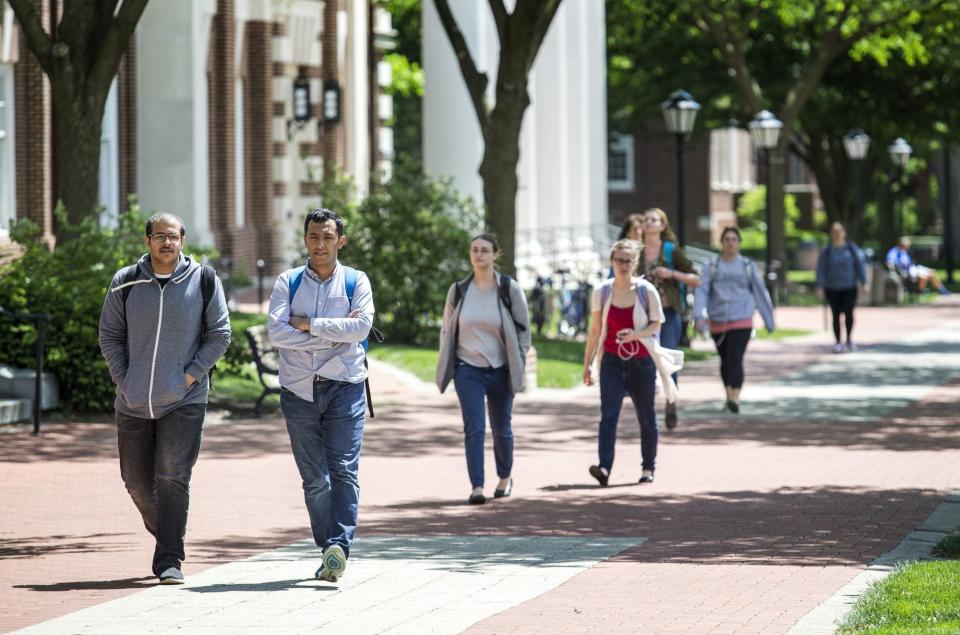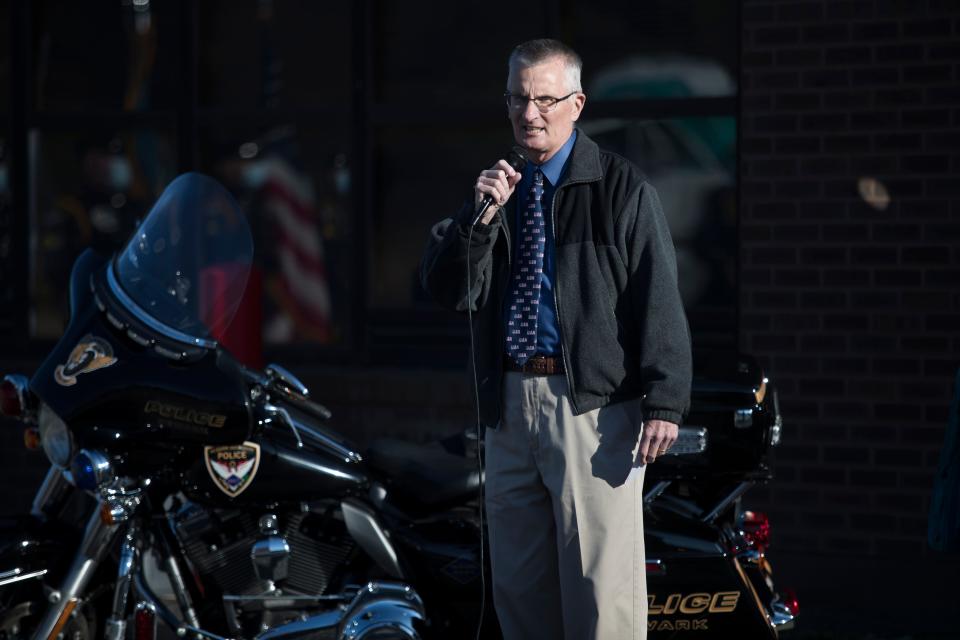Newark discusses another tax on University of Delaware, this time through rentals
The University of Delaware and its main-campus host in the city of Newark have been at odds over a familiar topic as of late. Taxation.
The city caught wide reaction for passing a resolution in support of a "per-student tax" to be levied on its university neighbors, now looking for state legislative support to update its charter and set the charge. However, the municipality's governing council had its eyes on another proposed tax to join it. That is: a tax on rental revenues.
Originally, the City Council had a matching resolution on its agenda earlier this month detailing hopes to collect a tax of "no more than 5% on the gross rents or lease payments" from owners of any residential and commercial rental properties, including properties owned by UD. The tax was not to be applicable to on-campus dorms, subsidized rentals or those already facing such a tax, according to the draft resolution. A portion of revenue would also divert to affordable housing projects.
But it was removed from the agenda Feb. 12. This week, Monday night's meeting saw just discussion of the move reach the docket. And conversation wasn't conclusive.

"Back of the napkin, I'm assuming it would probably be somewhere north of $3 million per-year, per-percent," City Manager Tom Coleman told the council, saying more specific forecasting and a defined rate would follow this authorizing legislation if it moved forward toward new code.
Council members echoed ongoing concerns of balancing a budget, looking for revenue streams that don't solely raise taxes on city residents, fielding residents' concerns with mixing student rentals and traditional neighborhoods. The body was unclear on how to address commercial, residential and mixed-use properties differently under the proposed tax, while some members weren't in favor of saving for affordable housing without ties to specific projects.
Reaction was mixed so far. Council chambers heard no vote on the measure Monday evening, as the city heads back to the drawing board on a draft for council consideration.
"You have the direction," Mayor Jerry Clifton said to his city manager, pressing the meeting forward. "That concludes conversation. ... It's almost 11 o'clock, and there's three other agenda items."
Previously on University of Delaware: City of Newark moves forward on new UD student tax, looks to state for support
What did I miss?

Newark says about 42% of real estate within the city is tax-exempt.
That's because the University of Delaware, like all nonprofits under state law, doesn't pay property taxes. If it did, the city estimates they would total around $6 million. It does pay operating costs to the city, like water and electricity, as well as certain fixed payments in lieu of taxes — but the council says such "PILOT" payments haven't been adjusted in nearly 60 years, despite the school quadrupling in enrollment.
And still, "students that attend the University of Delaware rely on the city to provide services that are financially supported by property tax revenue like police services and road maintenance," one resolution reads. The city contends that additional revenue sources are "imperative" to continuing to provide city services.
The City Council said yes to a per-student tax, unanimously, on Feb. 12.
That's "up to $50 per semester, per full- or part-time undergraduate or postgraduate student, at any college or university" attending in-person, the resolution reads, with that fee adjusting with inflation. Eyed at more than $2 million in potential city revenue.

Now, Newark must appeal to the state Legislature to approve a charter amendment, actually allowing the city to levy a new tax. Movement there has yet to be seen. This next tax on gross receipts of lease revenue would have to follow the same trajectory, though the city seemingly held back with its second proposal.
"If we hope to implement either tax early enough for it to be budget relevant for the 2025 budget year, we will need the state legislature to pass a charter amendment this legislative session," Newark's city manager wrote to the mayor and council ahead of February's first meeting, generating urgency. "Based on the remaining legislative calendar, that means we must act fast."
So far, only the per-student tax has moved out of the council.
ICYMI: Another Ivy brings back SAT, ACT scores. Will University of Delaware stay test-optional?
Got a story? Contact Kelly Powers at kepowers@gannett.com or (231) 622-2191, and follow her on Twitter @kpowers01.
This article originally appeared on Delaware News Journal: Newark yet to vote on additional tax impacting University of Delaware

